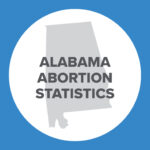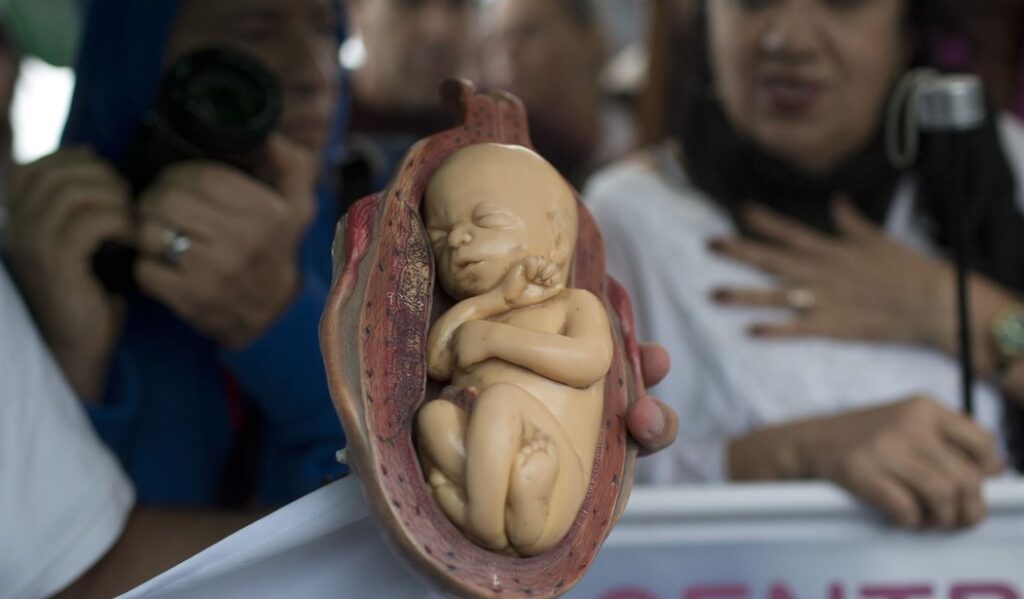Top 7 Quotes from Justice Stegall’s Opinion Dissenting from Kansas Supreme Court Abortion Ruling
On April 26, 2019 the Kansas Supreme Court declared that the Kansas state constitution guarantees a right to abortion.
The case involves a challenge to a Kansas statute banning the practice of dismemberment abortion—i.e., “with the purpose of causing the death of an unborn child, knowingly dismembering a living unborn child and extracting such unborn child one piece at a time from the uterus through the use of clamps, grasping forceps, tongs, scissors or similar instruments that, through the convergence of two rigid levers, slice, crush or grasp a portion of the unborn child’s body in order to cut or rip it off.”
In an article for The Federalist, the renowned legal analyst Margot Cleveland reports that “federal courts have declared similar bans on dismemberment abortions unconstitutional, but today’s decision [from the Kansas Supreme Court] is significant because, unlike other cases, it is based on a state constitutional right to abortion.”
The case will now go back to the trial court for a determination of whether the Kansas ban on dismemberment abortions violates, in Cleveland’s words, the “newly defined constitutional right” to abortion under the Kansas constitution.
According to Cleveland, the outcome of this case had been “expected[] given that former Kansas Governor Kathleen Sebelius, an abortion supporter, had appointed four of the seven Kansas Supreme Court justices.” However, “the 6-1 vote surprised some in the pro-life community. In addition to Sebelius’ appointed justices, Justices Marla Luckert and Lawton Nuss signed on to the majority opinion.”
With a disappointing decision like this one, it’s worth taking a good look at the dissent, if any. In this case, only one judge, Justice Caleb Stegall, dissented.
Justice Stegall’s dissent is lengthy (see pages 115 to 199 here). Here are seven choice excerpts. (For clarity, in some cases I’ve cleaned up the excerpts by removing quote marks inside of quote marks.)
- “Reading today’s majority opinion is a follow-the-white-rabbit experience. One is left feeling like Alice, invited by the Queen to believe ‘as many as six impossible things before breakfast.’ Carroll, Through the Looking-Glass 100 (1899).”
- “[T]he story told by the majority is a strange one. In it, all the luminaries of the western legal tradition—from Sir Edward Coke and William Blackstone to Edmund Burke and Thomas Jefferson—would celebrate and enshrine a right to nearly unfettered abortion access. In this imagined world, the Liberty Bell rings every time a baby in utero loses her arm.”
- “A ban on dismembering a living human being in utero is not inherently sexist and discriminatory.”
- There are women on both sides of this debate . . . . By claiming to speak for all women on such a divisive issue, it is actually a majority of this court who now reenact the old story of paternalism—a government stripping away the political agency of thousands of women simply because it claims to know better.”
- “The very language chosen by the majority to describe the act prohibited by S.B. 95—’instrumental disarticulation,’ ‘collapse of fetal parts,’ ‘fetal demise,’ etc. (slip op. at 8-9)—is designed to ‘name things without calling up mental pictures of them.’ Orwell, Politics and the English Language, in 4 The Collected Essays, Journalism, and Letters of George Orwell 127, 136 (Orwell & Angus eds., 1968). In the majority’s narrative, even the word abortion is set aside in favor of the anodyne decision to ‘continue a pregnancy’—a phrase occurring more times in the majority opinion than I can cite. Perhaps the majority finds the unsanitized facts ‘too brutal for most people to face.’ Orwell, at 136.”
- “Abortion has become the judicially preferred policy tail wagging the structure of government dog. For the majority, the settled and carefully calibrated republican structure of our government must give way, at every turn, to the favored policy.”
- “[I]n my considered judgment, constitutional structure is the very thing securing and guaranteeing the full range of human liberty. History and reason suggest that those who, in the name of liberty, tear down that edifice will wind up out in the political elements, unsheltered and exposed to the cold wind of every arbitrary power.”
Thomas M. Messner, J.D., serves as a Senior Fellow in Legal Policy and Associate Scholar at the Charlotte Lozier Institute.


























